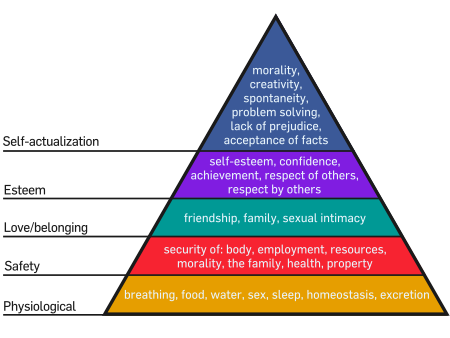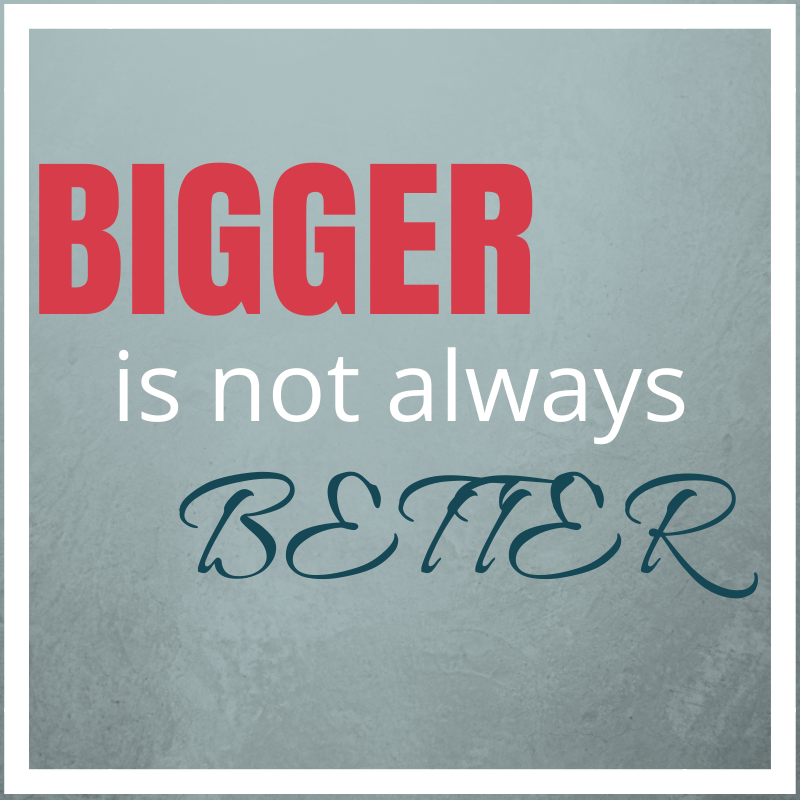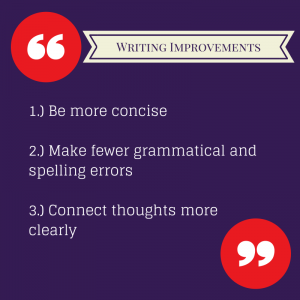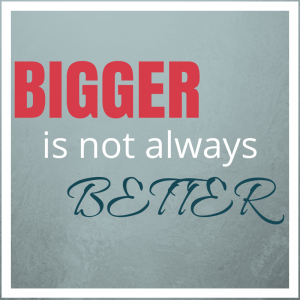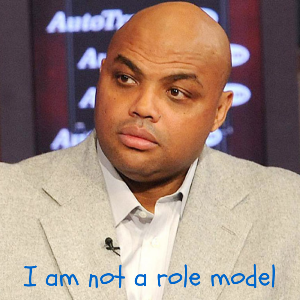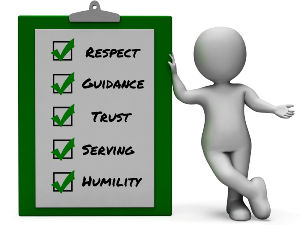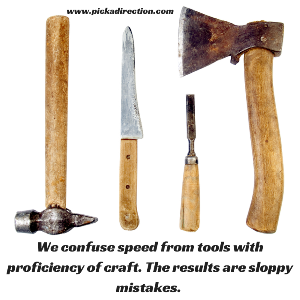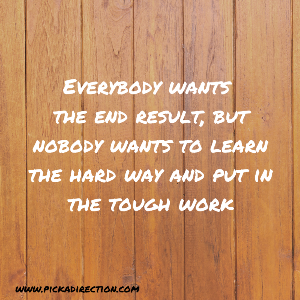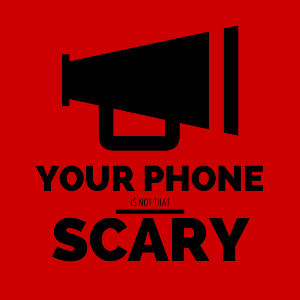free·lance (ˈfrēˌlans/) – working for different companies at different times rather than being permanently employed by one company.
This is what I have spent the majority of my time doing for the past few months. My plan is to turn freelancing projects into longer-term sustainable income, add salespeople, add designers and freelancers of my own, and continue to grow the business. But right now, I’m just doing a lot of freelance work.
I am creating websites, managing organizations’ social media accounts, and I am using my knowledge of content marketing and SEO (Search Engine Optimization) to get people as close to the first page of Google as possible. It’s a wide array of work, but it’s taught me very valuable lessons as I weave my way through these unique projects. In no specific order, here are 9 lessons I learned about freelancing.
Always Get Paid
What was the last thing you got for free? Did you enjoy it? Did you savor it? Or did you just think, “Well this is nice….” and took it for granted.
 People do not value free services. So when you work for free you are A.) Showing that your value is $0 and B.) Your opinion/work/expertise will not be valued like it would have been if someone had to pay you for your time.
People do not value free services. So when you work for free you are A.) Showing that your value is $0 and B.) Your opinion/work/expertise will not be valued like it would have been if someone had to pay you for your time.
Everyone wants something for free, but that’s because it’s free, not because they actually want it. Find the people who need your services. You won’t have a hard time getting those people to pay you.
Pricing: Err on the High End
One of the most important things I used to tell people when they were learning to sell furniture was to start high when quoting a price. You can always go down, but it’s almost impossible to go up.
The first price you quote will be the best possible scenario. Make sure it’s planned and calculated, not just randomly tossed out there. The same rule applies here: make sure your first price is the one you are comfortable with, even if there are still some details to work out.
Over-communicate
Most customer service issues are not caused by people being treated poorly. Most customer service issues arise from customers perceiving that nobody is taking care of them. This perception comes from a lack of communication.
Communicating effectively shows customers that you are working on their problems. It shows them that you care about them and you acknowledge that they are paying you for services. When people are confident that you are working on their issues, they are more lenient with you, even if something is going wrong.
It’s when you ignore them that you will find major problems. Ignorance is not bliss when it comes to customer service. Customers want to know what is happening every step of the way, even if it is simply to say,
“Hi Mr. ______, I am working on your project today and I’ll send you a complete update by the end of the week. Have a nice day.”
A note like this can go a long way, especially IF something does go wrong. You have proven to be trustworthy and they know that you will tell them what’s going on as you fix the problem.
Keep Great Records
Since my ultimate goal is to turn these freelancing gigs into a long-term sustainable business, I need to keep track of what I am doing so I can replicate it or teach others. I cannot do that off of memory alone, I have to document my processes. When I can show someone how I work, I can show them how to work for me.
Every time I take on communication with a customer, I try to do it the same way and tweak it when I see opportunity. Every time I work, I document my time so I get used to billing people by the hour. Every time I gain a new client, I record how I gained their trust.
I do not document just because I am going to scale this, it is because practice makes perfect when it comes to making sales. Here are some more insights on how to close more sales.
Make Sure YOUR Goals Match THEIR Goals
I made a website for someone recently and when it was finished I had my chest puffed out and I was strutting around thinking I did a pretty good job. *pats myself on the back*
Until I talked with my customer. He didn’t have the same aesthetic goals that I did. He did not like what I did whatsoever, and that was because our goals didn’t match going into the project. He wanted the shortest amount of copy possible and I wanted to draw it out longer to keep people on the site and stuff it with keywords.
In the end, it didn’t matter what I wanted because it is his website and he is paying me for it. I learned that I need to do a much better job of clarifying objectives in the beginning to make sure my goals match customers’ goals before I spend a bunch of time doing the “wrong” thing for them.
Always Be Prospecting
I overheard a conversation about a business that would go through great spurts of work with clients but then they would dip because they didn’t have more customers lined up. They would have to shift gears and prospect hard to get a client or two. Then they would go back and focus all their energies back on those clients.
The cyclical work created dips in their business and made cash-flow difficult to manage. If you are always prospecting and working on potential clients, you will have fewer dips in your business. Just because your hands are full today doesn’t mean that they won’t be empty next week.
Freelancing is hard for many reasons. But because you have to do your technical work AND your sales/marketing at the same time, you need to be able to wear multiple hats. Being able to work on the technical stuff as well as prospecting at the same time will help you avoid those dips in business.
*One way to help this is to ask for referrals or recommendations from your work. Written recommendations (from prior customers) can be very effective when courting new clients and referrals are the strongest leads known to man, these are two very effective ways to prospect.*
Up-Sell Your Current Customers
It’s not a surprise to read that it costs more to get new customers than it does to sell more to current customers. But it’s so obvious that we often forget it. Your current customers know you, trust you (hopefully), and are used to how you work. You have to work for all those with new clients.
How can you offer more value to your clients? If you offer logo design, can you offer business card creation services? If you offer social media marketing, can you offer email marketing services? If you offer sectionals, can you offer rugs to match?
Find what compliments your work and ask your customers if they need those services/products. The worst thing that can happen is they say, “No thanks, but I’ll keep you in mind when I do.” But if they do need those services, put together a package and offer it to them for a reasonable price.

Continuing Education
When you continue to learn, your bag of tricks expands. You can now offer that client twice as much value (see above point). Which means you can charge for new things OR you can charge higher prices since your skills (in theory) are in higher demand.
Education helps us to gain more knowledge. More often than not, experience shows us what not to do. Pair those together and you’ve got a leg up on every competitor out there.
Some people think that they have to be the master of a craft to freelance. I whole-heartedly disagree. You just need to know a bit more than your clients, keep learning and keep expanding your potential client pool.
Expect the Unexpected
Back to the website creation example: I finished this website thinking it was great. The client didn’t necessarily agree. I thought he wanted to be as close to the top of search engines as possible, which is what drove many of my decisions.
In reality, he wanted the simplest-looking site possible. That was more important to him that being on top of the search engines. I couldn’t fathom that he would rather have less copy on his site, effectively putting him further down the rankings.
But he couldn’t fathom putting so much text on his site. And when we finally met in the middle, we were already 25+ days into the 30-day process. If that would have happened on a larger project with a firm deadline, I would have been in trouble. Everything worked out great and everyone is happy, but I did NOT see that one coming.
Because I wasn’t prepared, I had to spend more time on the project than anticipated. It wasn’t a bad thing, it was just a learning experience. I’m glad it happened because it taught me to do a better job of fact-finding when starting new projects.
As I said, freelancing is difficult. You have to be disciplined and stay on top of your game, even more so than if you have a manager looking over your shoulder. But at the end of the day it can be very rewarding and if you keep good records, you can find ways turn your freelance work into a sustainable business.
What other lessons have YOU learned from doing freelance work?
—
I’d love to hear what you have to say about freelancing and building a business from this process. Leave me a comment below or chat with me on Twitter: @mikemccann3
Have a great week!

